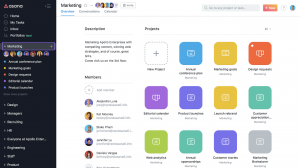Tech Companies Won’t Fight California Privacy Proposal
The Silicon Valley lobbying group Internet Association said Wednesday that it won’t lobby against a privacy bill that is moving quickly through California’s legislature.
The “California Consumer Privacy Act of 2018” (AB 375) would allow consumers to learn what “personal information” is being collected about them, and prevent the sale of that data to third parties. The proposed measure’s broad definition of personal information includes data that identifies consumers or could be linked with them. That type of information includes not only names and email addresses, but also IP addresses, browsing history and search history.
Tech companies and the ad industry don’t like the bill, but consider it preferable to a ballot initiative that has garnered enough signatures to qualify for a spot on November’s ballot. The group that is backing the ballot initiative plans to withdrew it — but only if the California Consumer Privacy Act is passed and signed by Thursday.
The Internet Association — which counts Google, Amazon and Facebook as members — said Wednesday that it won’t attempt to block the California bill, despite its “problematic provisions.”
“We oppose many problematic provisions contained within AB 375 and the unprecedented lack of debate or full legislative process,” Robert Callahan, vice president of state government affairs, stated. “The internet industry will not obstruct or block AB 375 from moving forward, because it prevents the even worse ballot initiative from becoming law in California.”
The Association of National Advertisers takes a similar position. That organization notes that if passed, the bill won’t take effect until January of 2020 — which will give officials an opportunity to tweak the measure.
“There will be a rulemaking by the Attorney General to clarify a number of ambiguous and conflicting provisions in the legislation,” ANA Executive Vice President for Government Relations Dan Jaffe writes. “There would be very little opportunity to change the ballot initiative if approved by the voters in November — ballot initiatives can be amended only through a 2/3 vote of both chambers of the state legislature.”
On Monday, the Internet Association, ANA, Chamber of Commerce and 21 other business groups complained to California lawmakers about the rushed legislative process.
“Since late last week negotiations have intensified with multiple versions of this bill being presented to some in the business community,” the groups wrote. “We are now faced with a ‘take it, or leave it’ scenario which is very problematic given that the business community overall has had little input to these negotiations.”
But in the end, the groups wrote that they preferred the bill to the ballot initiative.
Santa Clara University law professor Eric Goldman, who opposes the bill, described it on Wednesday as “a sweeping, lengthy, overly-complicated, and poorly-constructed privacy law that will have ripple effects throughout the world.”
“While not quite as comprehensive as the GDPR, it copies some aspects of the GDPR and will squarely impact every Internet service in California,” Goldman writes. “The GDPR took 4 years to develop; in contrast, the California legislature will spend a grand total of 7 days working on this major bill. It’s such a short turnaround that most stakeholders won’t have a chance to participate in the legislative proceedings. So the Internet is likely to change radically tomorrow, and most people have no clue what’s coming or any voice in the process.”
(29)
Report Post



